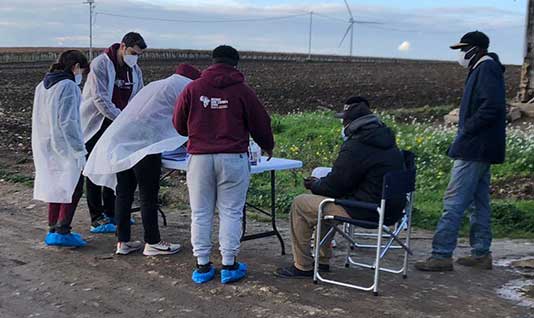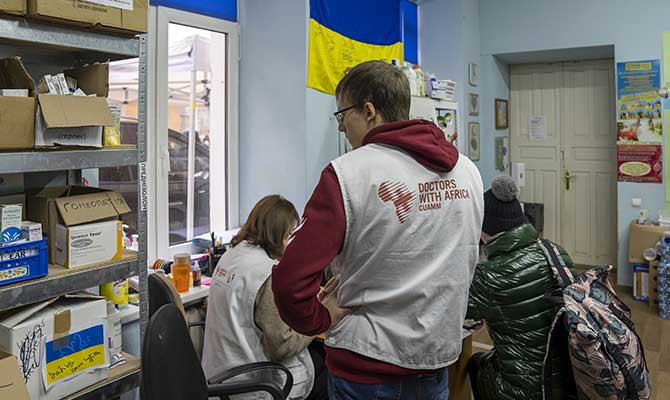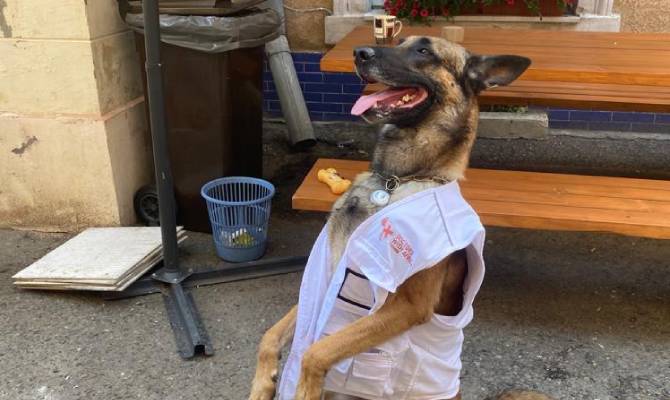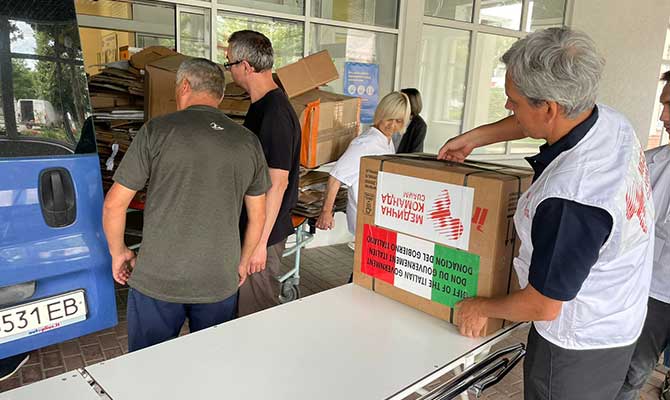When commitment, determination and professionalism are combined with values such as solidarity, global health, helping the least, near and far, great goals can be achieved. Goals that can in turn generate support, collaboration and harmony resulting in real help for the most vulnerable.
This is what is happening in Apulia where the local group of Doctors with Africa Cuamm Bari won the Community Award Program 2022, a competition promoted in Italy by the biopharmaceutical company Gilead Sciences for projects focused on infectious, oncological and oncohaematological diseases in our country.
The project ‘Out-of-Hospital screening and take care for HIV, HBV, HCV and Syphilis in a homeless and migrant population: an application of United Nations decade of action’ has hence been launched over the last weeks to promote prevention, raise awareness and inform fragile people such as the homeless and migrants about sexually transmitted diseases. An initiative in collaboration with the University of Bari and the Welfare Department of the Municipality of Bari.
The driving force behind the intervention is Francesco di Gennaro, a young infectivologist and researcher at the University of Bari, with a passion for Africa and the most vulnerable ones. Over the years, Francesco has completed several missions with Cuamm, as the one in Sierra Leone in 2018 at the Princess Christian Maternity Hospital -the largest maternity hospital, and others in Uganda, Ethiopia and Mozambique. Nevertheless, Francesco has never failed in serving his nearest neighbours.
“The project, as it has been planned, makes it possible to effectively intervene in the fight against sexually transmitted diseases in populations that are particularly difficult to reach even by the city’s health services – explains Francesco Di Gennaro, Project Manager and Researcher at the University of Bari -. ‘In this sense, it can build and strengthen individual pathways of hooking up, taking charge of, and accompanying individuals to health services other than those specific to infectious diseases, with a view to the social and health integration of these populations. Thanks to the screening service, a health pathway can be created for the benefit of both individuals and communities, which are often left on the sideline of health services. Moreover, it is a way for the city, the university, the municipality and the third sector to stand by the most vulnerable, those “abandoned”, and this added value is central to our action as citizens, researchers and doctors”.
HIV, syphilis, hepatitis B and C…: the project aims at offering information, diagnosis and treatment on sexually transmitted diseases that are often undiagnosed or untreated, also due to poor access to social and health services. Trained doctors and nurses will have direct contact with homeless people and migrants in the city, also with the support of linguistic and cultural mediators. Thus, socio-demographic information will be collected through ad hoc questionnaires, a complete anamnesis of the people approached will be carried out, and their knowledge of sexually transmitted diseases will be detected. Finally, samples will be taken for the diagnosis of HIV, hepatitis (B and C) and syphilis infections, the results of which will be shared at a later meeting. In case of positive result, it will be possible to further investigate the results of the sampling and start treatment at the University Clinic for Infectious Diseases at the Bari General Hospital.
“One of a kind for the city of Bari, the project is an opportunity to learn about the actual spread of these infections among homeless people and migrants,” explains Francesca Bottalico, Councillor for Personal Services, Social Inclusion and Poverty Alleviation, Reception and Integration of the city of Bari. It will also be an opportunity to raise awareness on these diseases and to educate on behaviours that can reduce the risk of spreading and contagion. In addition, the project will allow us to provide assistance to positive patients by being able to follow them through the treatment pathway”.





